The Creative Commons (CC) is a series of licenses that make it easy for creators to share their work and adapt the work of others. Just because something is online doesn’t mean you are free to use it however you like.
How do I know if a work has a CC license?
If you don’t see a Creative Commons license on the work or the creator doesn’t tell you their work is free to use, you cannot use it.
There are three ways to know if a work has a Creative Commons license:
- You see a Creative Commons icon like the ones above.
- The text says CC BY or another variation of the above licenses.
- Some websites, like Opensource.com, have an overall license for the site, so look for that at the bottom of the homepage or on the About page.
Pop culture works are almost always under copyright licenses. Sometimes fanart or works inspired by these properties will be incorrectly labeled under a Creative Commons license. This does not mean these works are okay to use: only the original creator or current copyright holder can give permission to release their work into the Commons.
Search.creativecommons.org is a good place to start searching for Creative Commons licensed works.
How does copyright work?
Photos, art, movies, songs, and books all belong to the people who made them. When a new work is created, the copyright belongs to the creator. The creator has a right to decide how their work will (or won’t) be copied, remixed (changed), and shared. No one can use someone’s work without permission.
Creative Commons empowers creators to give implicit permission to everyone to use, share, and remix their work without needing to ask in each instance. Creative Commons licenses can be multi-layered, allowing more or less freedom.
Creative Commons license types
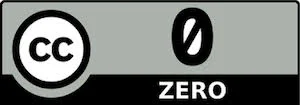
Creative Commons 0
- No credit is required
- The work can be remixed
- The work can be sold
The following licenses can be mixed and matched to create six unique licenses:
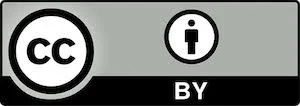
Creative Commons Attribution
- You must give credit to the author
- The work can be remixed
- The work can be sold
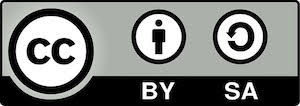
Creative Commons Attribution ShareAlike
Articles here on Opensource.com, with few exceptions, use this license.
- You must give credit to the author
- The work can be remixed; the new work must have the same license
- The work can be sold
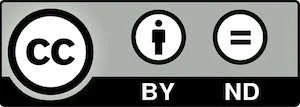
Creative Commons Attribution-NoDerivs
- You must give credit to the author
- The work can not be remixed; it can only be used in the original way
- The work can be sold
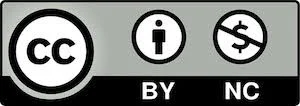
Creative Commons Attribution-NonCommercial
- You must give credit to the author
- The work can be remixed
- The work can not be sold or used for commercial purposes
How do I give my work a CC license?
The Creative Commons license chooser makes it easy to apply a Creative Commons license to your work.
Choose carefully, however; once a Creative Commons license has been applied, it cannot be revoked.
Though not necessary, it is good practice to embed the license and your name into the metadata of the work, so the license follows the work, even if someone forgets to properly attribute.
A few words of caution: Logos should not be Creative Commons licensed. Fanart of copyrighted material cannot be Creative Commons licensed, as you are not the copyright holder of the original work.
How do I share or remix a work that is CC licensed?
It is important to include the appropriate information when you are sharing, repurposing, or remixing someone else's work that is CC licensed. The CC license they applied indicates what you need to do next.
Why would I want to share my work with others?
There are many reasons to license your work with a Creative Commons license:
- Contributing to the culture of free works
- Engaging fans of your work
- Making your work easier to share
- Convenience: under traditional copyright, if you want others to use your work, you must grant licenses to each person individually, whereas Creative Commons empowers you to grant permission to everyone automatically
- Adaptability: your creation can grow, change, and become something better than you ever imagined
Can I still sell my work?
Licensing your work as Creative Commons doesn’t mean you can’t earn money from your creation. For instance, a popular party game, Cards Against Humanity, is licensed as CC BY-NC-SA. Players have the option to download the game and print out the cards for free, or they can buy professionally printed versions and expansion packs.
In 2017, Creative Commons published 24 case studies highlighting organizations and businesses that use Creative Commons licenses while still making revenue. These articles are a fascinating look at how the Commons successfully spans technology, the arts, and education.







Comments are closed.